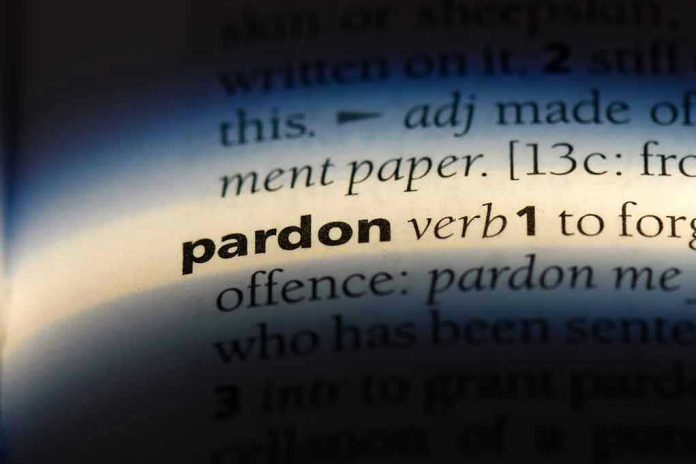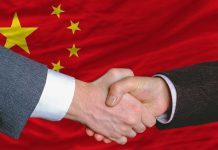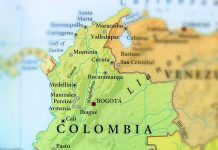
The controversial decision of President Trump to pardon Binance’s founder, Changpeng Zhao, is a twist in the tale of cryptocurrency and political power.
Story Overview
- Trump pardons Binance founder Changpeng Zhao, sparking debate.
- Zhao’s conviction involved anti-money laundering failures.
- Trump’s ties to crypto ventures raise conflict of interest concerns.
- The pardon could impact future regulatory measures and political discourse.
The Pardon and Its Implications
In a move that has sent ripples through both political and cryptocurrency circles, President Donald Trump granted a presidential pardon to Changpeng Zhao, the founder of Binance. Zhao, commonly known as “CZ,” had been convicted for failing to maintain an adequate anti-money-laundering program at the world’s largest cryptocurrency exchange. This failure allowed criminals to exploit Binance for illicit activities, leading to Zhao’s guilty plea and subsequent four-month prison sentence before the pardon.
The pardon has drawn significant attention due to Zhao’s business connections with World Liberty Financial, a crypto venture launched by Trump and his sons. The move raises questions about potential conflicts of interest, especially given the timing of the pardon following substantial investments in Binance by a UAE fund using World Liberty Financial’s USD1 stablecoin. The pardon also ignites debates over the regulation of cryptocurrency and the use of presidential clemency powers.
Background and Key Events
Binance, founded in 2017 by Zhao, rapidly ascended to the top of the cryptocurrency exchange world. However, its swift rise attracted regulatory scrutiny, particularly regarding its anti-money-laundering (AML) controls. By 2023, Zhao faced investigations by U.S. authorities and ultimately pleaded guilty to failing to implement adequate AML measures. His conviction highlighted the platform’s use for money laundering linked to serious crimes such as child exploitation and terrorism. The guilty plea resulted in Zhao serving a four-month prison sentence as part of a plea deal.
In early 2025, Trump and his sons entered the crypto scene with World Liberty Financial, creating a direct business link to Zhao. By September 2025, significant investments in Binance using World Liberty Financial’s stablecoin highlighted these ties. Trump’s pardon of Zhao on October 24, 2025, has since fueled speculation about the motivations and implications of this decision, especially considering Trump’s financial interests in the crypto sector.
Stakeholders and Reactions
The primary individuals involved in this unfolding story include Changpeng Zhao, President Trump, World Liberty Financial, and the U.S. Department of Justice, which prosecuted Zhao for his AML violations. Zhao’s pardon was met with gratitude from the crypto mogul, who hailed it as a victory for “fairness, innovation, and justice.” Meanwhile, the White House defended the pardon, attributing Zhao’s prosecution to anti-crypto sentiment during the Biden administration. Trump, for his part, claimed he did not know Zhao personally and acted on recommendations from influential figures in his business network.
Trump Pardons Founder of the Crypto Exchange Binance https://t.co/olaXC2u9MM via @NYTimes
— Anthony DiMarco Fund (@DimarcoFund) October 24, 2025
Critics of the pardon argue that it undermines the rule of law and suggests tolerance for regulatory noncompliance. The decision has polarized the political community, with supporters framing it as a pro-innovation move and detractors pointing to conflicts of interest and the erosion of AML standards in the crypto industry. The pardon has also prompted discussions about the ethical implications of presidential clemency for individuals with ties to the president’s business ventures.
Future Implications and Industry Impact
Zhao’s pardon restores his ability to engage fully in the crypto industry, potentially bolstering Binance’s reputation among supporters and investors. However, it also sets a precedent that could influence future regulatory enforcement and presidential intervention in crypto-related cases. The pardon may intensify scrutiny of political-business entanglements and raise questions about the balance between innovation and regulation in the rapidly evolving crypto industry.
The broader implications for the cryptocurrency sector include potential shifts in global perceptions of U.S. crypto regulation and enforcement. Depending on stakeholder views, the pardon could either attract or deter international investment in the U.S. crypto market. The decision’s economic, social, and political impacts are likely to resonate in ongoing debates over crypto regulation, accountability for tech executives, and the use of presidential powers.










